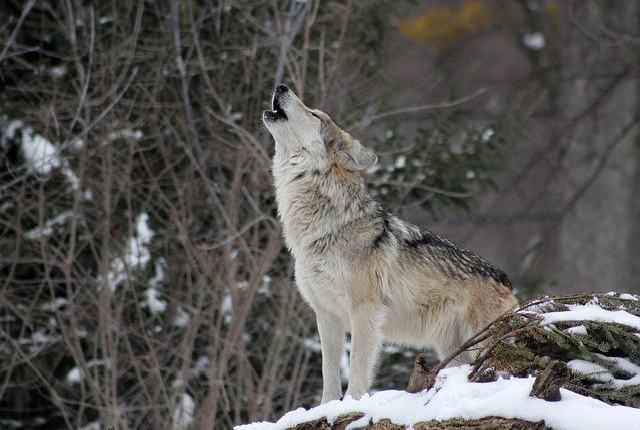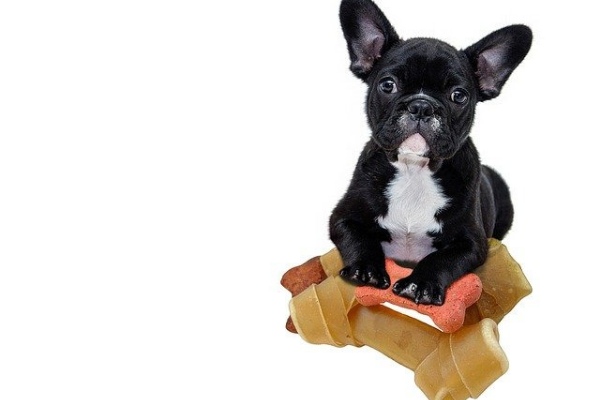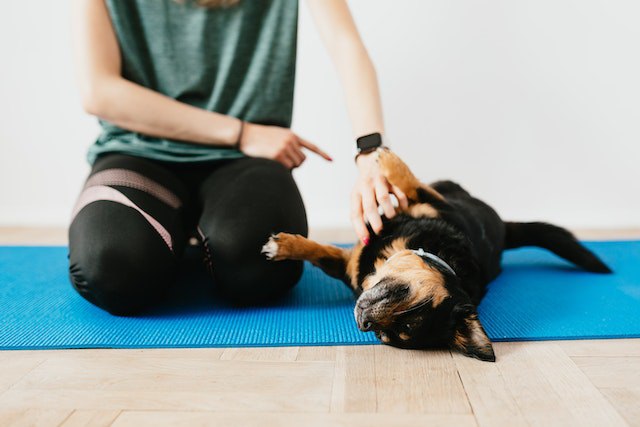17 Possible Reasons For Your Dog Acting Weird & Tips

Dog acting weird is always a problem for most dog owners, but sometimes it’s not a serious issue.
This post looks at the most common reasons for your dog acting weird.
Most of the time your dog is acting weird it might be due to changes in your personal behavior or the environment.
Reasons for your dog acting weird
Here are some of the most common reasons for your dog acting weird:
1. Dogs act weird out of frustration
A frustrated dog can act weird so fast that you will think your dog has gone insane.
A frustrated dog can lash out at you, or exhibit some form of aggression towards their owners or pets around.
Changing daily routine, depression, leaving your dog alone for too long, shouting at them, and lack of mental stimulation activities can all lead to frustration in dogs.
Pain or canine arthritis can also lead to unnecessary frustration in dogs and this can in turn lead to your dog acting weird due to pain.
2. Sign of illness or disease
The bizarre behaviors that these illnesses might cause are as varied as the ailments themselves.
Your dog might get a variety of ailments and illnesses, ranging from parasites and infections to cancer and heart problems.
If you suspect your dog is acting strangely as a result of a medical ailment, you should see your veterinarian straight once.
If your dog is acting strangely, it might be a severe condition, and they are frequently time-sensitive, so keep an eye out for additional ill dog indications.
3. Hormonal fluctuations
Hormones may alter a dog’s mood and behavior, much as they can in humans which can lead to your dog acting weird.
If your pet is pregnant or approaching sexual maturity, she may experience a spike in hormones.
Excessive panting, humping, nesting, and hostility might arise as a result of this.
While these hormonal behaviors are only transitory, getting your dog spayed or neutered is the best way to avoid them.
4. Stress and anxiety
Dogs are pets who stick to their routines changing their routine leads to stress and anxiety which can affect the way they act.
Stress and anxiety can arise when your pet’s usual routine is disrupted and this can lead to your dog acting weird.
Anxious dogs may refuse to eat, have accidents indoors, attempt to hide, or generally act weird.
Your dog may feel uneasy if you’ve just relocated, changed your dog’s routine, acquired another pet, or have relatives and friends visiting.
Relaxation clues or supplements, medicine, special meals, and plenty of love are all options for a stressed-out dog.
To reduce your dog’s anxiety risk, try to keep him on the same schedule every day.
5. Loneliness or boredom
Loneliness or boredom in dogs is caused by a lack of activity, which can cause your dog to act strangely or even become destructive.
Loneliness or boredom is one of the most typical causes of your dog’s strange behavior.
Many pet owners are seduced by puppy-dog eyes and the concept of owning a pet
But few dog owners are able to commit to caring for a pet properly.
Having a pet entails more than simply cuddling and hugging.
It also entails providing your dog with adequate attention, exercise, healthy food, and correct care.
Leaving your dog alone for too long leads to boredom and loneliness which lead your dog acting weird.
6. Persistent dread
Fearful dogs may exhibit unusual behaviors such as hiding, feces, yelping, avoidance, and hostility.
These actions are only transitory and will go away soon your dog regains his confidence and calm.
If your dog has been through a traumatic event, he may develop persistent dread.
It’s possible that medication, training, and desensitization techniques will be required.
Consult a certified trainer, animal behaviorist, or veterinarian if your dog is continually afraid.
7. Excitement
One of the most prevalent causes of dogs acting strangely is excitement, which can manifest itself in the form of shaking.
Shaking from excitement is a natural reaction that occurs when the dog releases any surplus energy, whether it occurs when a new acquaintance drops by the house.
If you have a puppy, over-excitement is likely to be a regular occurrence for both the puppy and visitors.
When dogs become extremely enthusiastic, they typically gallop about you or behave in ways that are confusing to you.
8. Separation Anxiety
Dogs that are left alone for lengthy periods of time develop separation anxiety.
Separation anxiety in dogs manifests itself when your dog becomes anxious or destructive when left alone.
Avoid leaving your dog alone for lengthy periods of time and ensure that he or she receives adequate attention and care.
There are lots of ways to prevent dog separation anxiety or control them.
9. Chronic pains or injury
If your dog is injured in any manner, he or she may exhibit a variety of unusual behaviors or act weird.
The area of your dog’s injuries will have a significant impact on their behavior.
When your dog’s paw is damaged, for example, he or she will lick it.
If the anal sac is injured, your dog will most likely be dragging its butt on the floor.
Biting, scratching, and licking are all symptoms that an injury has occurred which can cause your dog to act weird.
Another sign is when your dog refuses to let you touch them in a specific area. They might also be limping or favoring one limb over another.
10. Disruptive lifestyle
Most substantial changes in your dog’s life might cause strange behavior as your pet tries to adjust.
Such alterations come as a complete surprise to your dog, and they can be highly upsetting to their daily routine.
Dogs are creatures of habit that thrive when they have a consistent daily schedule.
They like eating at the same time every day, going for walks at the same time, and even playing at the same time.
When you abruptly disrupt an element of that pattern, though, your dog may take it far more seriously than you do.
When feasible, make changes to your routine gradually and steadily to avoid your dog acting weird due to changes.
11. Cognitive Dysfunction
Your dog’s cognitive function may begin to degrade as he gets older which is one of the common reasons for your dog acting weird.
Senior dogs may sleep more, bark incessantly, look blankly into space, and get disoriented in their own house.
If your dog is acting strangely, he might be suffering from dementia or cognitive impairment.
Make an appointment with your veterinarian to determine the best course of action.
Medication, supplements, and special diets are examples of solutions that will be recommended by the vet.
12. Allergic response
Food allergies and flea allergy dermatitis are the most frequent dog allergies, aside from environmental allergies.
Canine allergies can cause your dog’s skin to become irritated, resulting in scratching, biting, chewing, and other unusual actions that you wouldn’t expect from your dog.
Allergies can cause tiredness, sneezing, coughing fits, and other symptoms that might be misinterpreted as odd behavior.
13. Effects of poor nutrition and Environmental Factors
Insufficient nourishment might be the cause of your dog’s laziness, lack of energy, or sad and down behavior.
One of the most prevalent causes of dogs abruptly ceasing to eat is dietary changes.
Your dog’s body will be depleted of energy if they aren’t obtaining enough calories or nutrients.
This might be due to a nutritional deficit or simply a lack of food in general for your dog.
Things that make loud noises, such as a construction crew working next door, or changes in the weather and seasons, can all alter your dog’s behavior.
Many of these changes are more sensitive to your dog than they are to you, and for some dogs, this implies a far more obvious reaction.
14. Ingestion of poisonous materials
Your dog’s trembling and unpredictable behavior are clear symptoms that he or she has consumed something harmful.
Vomiting, excessive salivation, dry heaving, a racing heart, and pale gums are some additional symptoms.
Dogs may be poisoned by common home goods like chocolate, mouse poison, lawn fertilizer, snail bait, cigarettes, and xylitol, in addition to poisons.
These are all dangerous products placed outside where an inquisitive dog can come upon them.
If you fear your dog has been poisoned, you should take him to an emergency veterinarian as quickly as possible.
15. Sign of canine distemper
Thankfully, pups can be protected against distemper by receiving the DHPP vaccination.
Canine distemper, which is caused by a virus, is a life-threatening disease that affects pups and young dogs that have not been vaccinated.
The neural systems of the puppies who do survive are usually permanently damaged most of the time.
Distemper is conveyed through the air by infected animals coughing or sneezing.
The distemper virus can also be passed from one dog to another via sharing bowls or toys causing your dog to act weird.
16. Sign of dog seizure
Seizures, such as epilepsy, are unfortunately rather prevalent in dogs.
If your dog is having a seizure, it will fall on its side and begin moving its legs as if it were running or swimming.
Seizures are not unpleasant for dogs, but they are hazardous because they can lead them to fall and hit something.
If you see your dog experiencing a seizure, you should immediately contact your veterinarian.
Once your dog has been diagnosed, your veterinarian will most likely prescribe seizure drugs.
17. Presence of new pets or humans
It’s difficult to predict how your dog will respond to a new person or pet when they start acting strangely.
They may become afraid, worried, or apprehensive, or they may get along swimmingly with the newcomer straight away!
Because each pet will respond differently to this situation.
You’ll need to keep an eye on your dog’s behavior for hints about how they feel about the new person or pet.
Ways dogs act weird
Here are some common ways dogs can act weird which include the following:
- Dogs eating their poop.
- When dogs bite themselves.
- Frequent and improper urination.
- A dog keeps going round in circles.
- Dog chasing its tail.
- Freezing.
- Unnecessary yawning.
- Digging holes outside and hiding.
- Rubbing their butt on the floor persistently.
- Dog acting overly affectionate.
- Pushing its head against the wall.
- Digging at blankets.
- Couches sound familiar.
- Continuous whining or crying.
- Running from a particular object.
- Excessive barking at odd times or at nothing.
- Lack of energy, self-isolation, and activity
- Dog avoids food and water at certain times.
What to do if your dog keeps acting weird
Here is what to do if your dog keeps acting weird:
- Find out the reasons for your dog’s strange behavior.
- Remove the cause of the weird behavior.
- Provide a safe spot or calming environment.
- Try to make and keep eye contact with your dog.
- Call your dog’s name in a calm tone.
- Remove any objects that can cause further harm.
- Do not panic, stay coordinated.
- Don’t start shouting or screaming at the dog.
- Wait for a while before you act out.
- Seek professional help if your dog’s condition persists.
When to visit a dog veterinarian
If your pet’s strange demeanor persists after a few weeks, a trip to the clinic may be necessary.
Visit your veterinarian right once if the strange mood is accompanied by any abnormalities like appetite changes, vomiting, or diarrhea.
If your dog’s strange behavior has no physical expression, it might be a behavioral issue, in which case seeing a pet behaviorist is your best choice.
In summary,
There are a variety of reasons why your dog may be acting strangely, including sickness, injury, boredom, anxiety, dietary issues, or changes in their surroundings.
Allergies, changes in your dog’s routine, new people or dogs in the house, stress, and anxiety are all possible reasons for strange behavior in your dog.
When your dog acting weird persists you should see your vet.




![Dog Drinking a Lot of Water And Not Eating [Explained] Dog Drinking a Lot of Water And Not Eating](https://petcreeks.com/wp-content/uploads/2023/02/Dog-Drinking-a-Lot-of-Water-And-Not-Eating-768x555.jpg)

